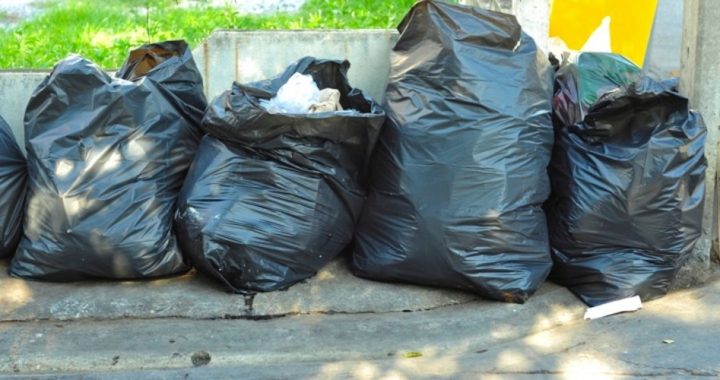
Your refrigerator fails and you dump a large amount of spoiled food in the garbage? That could mean a fine under a new ordinance in Seattle.
The measure is designed to encourage composting, and it empowers garbage collectors to conduct a “cursory” inspection of residents’ trash in an effort to find violators. Writes the Seattle Times:
If they see compostable items make up 10 percent or more of the trash, they’ll enter the violation into a computer system their trucks already carry, and will leave a ticket on the garbage bin that says to expect a $1 fine on the next garbage bill.
Apartment buildings and businesses will be subject to the same 10 percent threshold but will get two warnings before they are fined. A third violation will result in a $50 fine. Dumpsters there will be checked by inspectors on a random basis.
Collectors will begin tagging garbage bins and Dumpsters with educational tickets starting Jan. 1 when they find violations. But fines won’t start until July 1.
The Seattle City Council voted 9-0 for the new ordinance. RT.com explains the motivation behind it:
The city is issuing the fines to meet its self-imposed goal of recycling 60 percent of all waste in 2015. Seattle’s recycling rate in 2013 was 56 percent, a slight increase over 2012’s rate.
“Compostables are about 30 percent of what is still in the garbage and they are the largest target we have to help us reach our goals,” Timothy Croll, solid waste director of the utilities commission, told Q13. “Also, composting food waste reduces emissions of methane, which is a strong cause of climate change” [Emphasis in original].
The city expects residents and businesses to put compostables in separate compost bins.
Not surprisingly, the measure has been condemned by many as the embodiment of intrusive and inverted nanny-state priorities. One poster under the Seattle Times article wrote, “Imagine a world where you get fined for putting compostables and recyclables in your trash, but not for smoking pot in downtown public parks. We should call it … Seattle!” Another opined, “Wow! I have two street lights out, two dangerous ruts in the sidewalk, and [am] missing a stop sign at a dangerous crossing. Can we train the ‘Garbage Can Police’ to do some of this work when they’re not busy rummaging through the trash?” This reflects commenter consensus, which runs strongly against the ordinance. Critics also wonder how a garbage collector can reliably ascertain whether the 10-percent compostables threshold has been reached based on just a cursory visual inspection.
There’s also concern that widespread composting could attract vermin. And some cite Vancouver, Canada, as a case in point. After compost-eating rats laid siege to a daycare’s playground in the city earlier this year, the National Post wrote:
Although Beach YMCA Child Care’s plight is among the more dramatic rat invasions to strike Downtown Vancouver, it is symptomatic of a city-wide surge in rat populations.
“There’s been a drastic increase … it’s very noticeable,” said Patrick McLaughlin, owner of Vancouver’s Mantis Pest Control.
For him, the main rat attractor appears to be compost; large, backyard composters or City of Vancouver green bins.
“My customers are telling me they’ve never seen rats before, and now they see the rats around the composters,” said Mr. McLaughlin. When night falls, he says, they report “rats all over their backyard.”
As part of a push to divert all organic waste from area landfills by 2015, in May 2013 Vancouver began requiring residents to deposit all food waste in municipal green bins that are picked up weekly.
Within a few weeks, the hot summer temperatures were already generating complaints about odour, flies, maggots and rats.
Then there are those who say the ordinance trashes the Constitution. For example, appearing on the Monday edition of “Your World with Neil Cavuto,” Judge Andrew Napolitano said “To pick through a garbage can looking to see how much food is in there? Absolutely prohibited by the Fourth Amendment…. The Fourth Amendment covers all privacy, and you have a privacy interest in your garbage, unless the government has probable cause to believe there’s a crime scene there.”
But the courts have ruled otherwise. As the New York Times wrote about the 1988 Supreme Court decision on the matter:
[T]he police may freely search through garbage bags and other refuse containers that people leave outside the home for collection.
Under the Court’s 6-to-2 decision, such searches may be conducted without a warrant and without any reason to suspect criminal activity.
… Justice Byron R. White’s opinion for the majority said the privacy of garbage bags left outside the home and its immediate surroundings is not protected by the Fourth Amendment because people have no ”subjective expectation of privacy” in their garbage ”that society accepts as objectively reasonable.”
… Justice White said that one cannot reasonably expect privacy in one’s garbage because ”it is common knowledge that plastic garbage bags left on or at the side of a public street are readily accessible to animals, children, scavengers, snoops and other members of the public.”
Of course, this doesn’t mean the ordinance is a good idea or even that the court was correct regarding constitutionality (two justices disagreed). It simply means that, as with so many things today, citizens must look beyond the courts for remedy.



